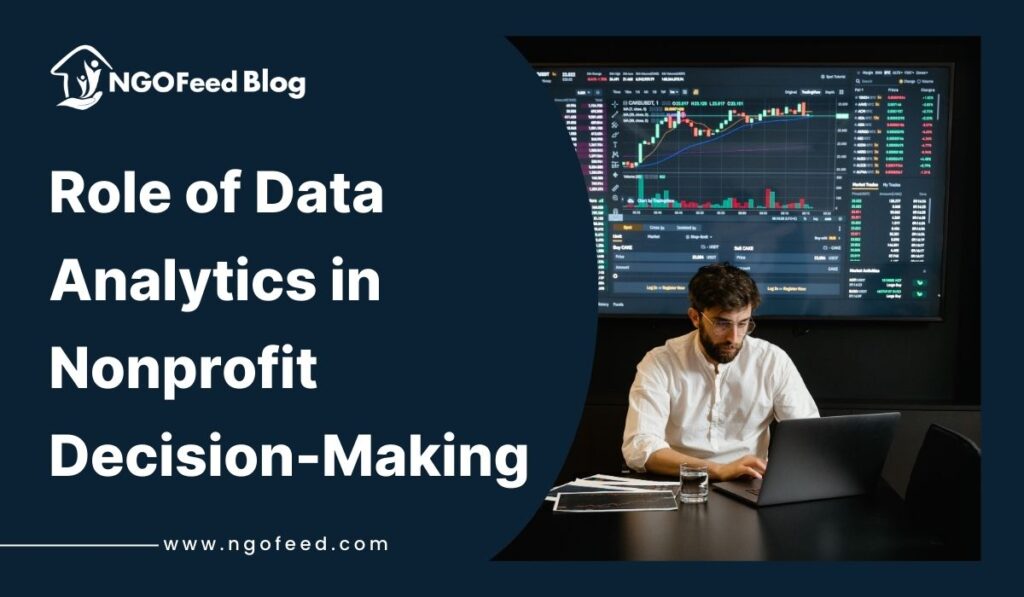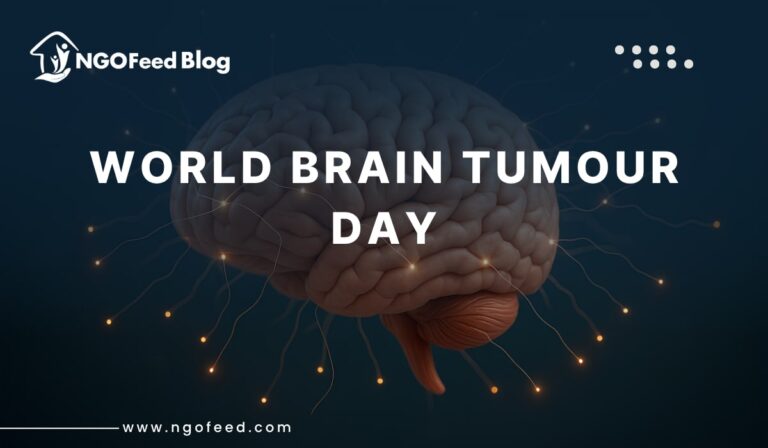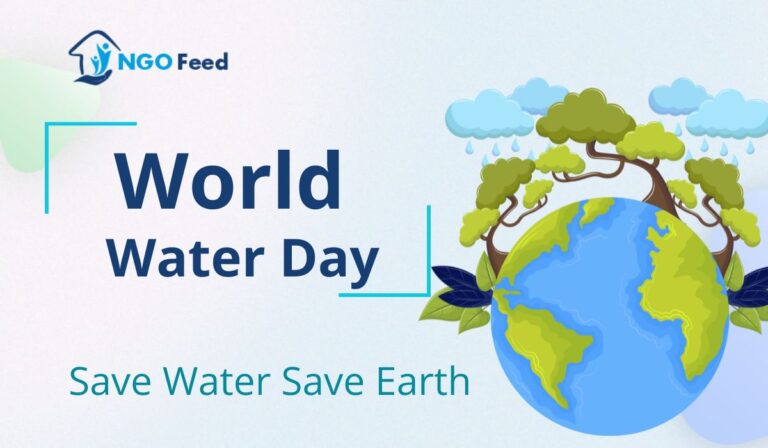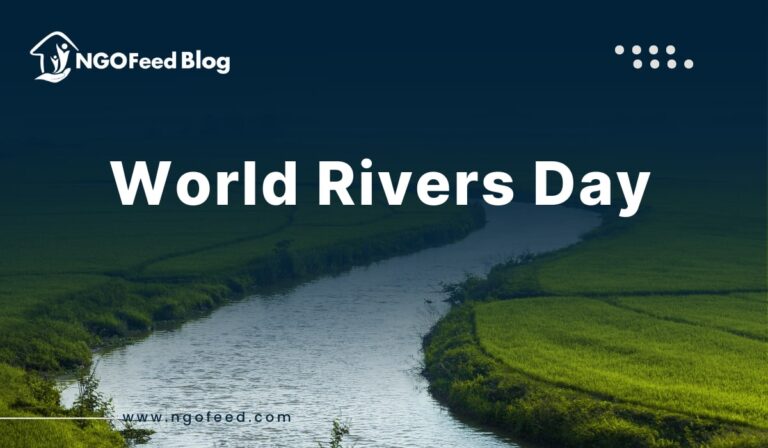Role of Data Analytics in Nonprofit Decision Making: For an extended period, nonprofit organizations have commonly depended on enthusiasm, anecdotal evidence, and instinct to influence their essential decisions. Although these factors continue to be important, the emergence of data analytics provides a powerful new perspective through which nonprofits can comprehend their operations, beneficiaries, and impact with unmatched clarity. This article discusses how adopting data analytics is no longer a choice but a requirement for nonprofits aiming to enhance their effectiveness, allocate resources wisely, and ultimately, better fulfill their missions.
Table of Contents
The Treasure Trove of Nonprofit Data
Nonprofits frequently possess a wealth of unused data. This information can originate from various sources, including:
- Donor Management Systems: Monitoring donation history, giving patterns, demographics, and engagement levels.
- Program Management Systems: Documenting beneficiary information, service delivery, participation rates, and outcomes.
- Website and Social Media Analytics: Gaining insights into online engagement, reach, and audience demographics.
- Volunteer Databases: Evaluating volunteer hours, skills, and retention rates.
- External Data Sources: Census data, socioeconomic indicators, and publicly accessible research relevant to their mission.
By systematically gathering, refining, and analyzing this data, nonprofits can progress beyond assumptions and acquire concrete insights into what is genuinely effective and where enhancements can be made.
Also Read: How to Start an NGO Crowdfunding Campaign?
Key Ways Data Analytics Empowers Nonprofits
Data analytics presents numerous advantages for nonprofit decision-making:
- Enhanced Program Effectiveness: By studying program data, nonprofits can pinpoint which interventions are producing the best outcomes, gain a deeper understanding of their beneficiaries’ needs, and tailor programs for greater effect. For instance, an education-focused nonprofit might examine student performance data to identify areas of difficulty and modify tutoring strategies accordingly.
- Strategic Resource Allocation: Data can illustrate which fundraising campaigns are most effective, which programs yield the highest return on investment (in terms of impact per dollar spent), and where operational efficiencies can be realized. This enables nonprofits to distribute their limited resources in a manner that maximizes their mission delivery.
- Improved Fundraising and Donor Engagement: Analyzing donor behavior through data analytics allows nonprofits to customize their outreach, identify potential major donors, and foster stronger, long-lasting relationships. Evaluating giving patterns can guide targeted appeals and enhance donor retention rates.
Also Read: Gamification in Volunteering
- Stronger Advocacy and Communication: Evidence supported by data is essential for advocating for policy modifications and conveying the organization’s impact to stakeholders, including funders, the public, and policymakers. Measurable results and trends add credibility and fortify persuasive arguments.
- Better Risk Management and Operational Efficiency: Examining financial data, operational metrics, and potential risks enables nonprofits to make informed choices to ensure sustainability and efficiency. Recognizing trends in expenses or service delivery can aid in preempting possible issues and optimizing workflows.
- More Informed Strategic Planning: Data offers a solid basis for creating realistic and impactful strategic plans. By comprehending past performance, current trends, and future requirements through data analysis, nonprofits can establish measurable goals and monitor progress effectively.
Also Read: Microdonations for Nonprofits
Overcoming Challenges and Embracing the Data Journey
While the advantages of data analytics are evident, nonprofits may encounter challenges such as limited resources, a lack of technical expertise, and data silos. Nevertheless, these barriers can be surmounted by:
- Starting Small: Concentrating on particular questions and pilot projects before rolling out extensive data initiatives.
- Seeking Partnerships: Teaming up with data scientists, consultants, or other nonprofits to gain access to expertise and resources.
- Investing in User-Friendly Tools: Employing cost-effective and easily accessible data analytics platforms intended for non-technical users.
- Building a Data-Driven Culture: Cultivating an organizational mindset that appreciates data and promotes its application in decision-making at every level.
- Focusing on Actionable Insights: Emphasizing analysis that results in definitive actions and measurable enhancements.
Also Read: Gen Z is the Next Wave of Donors
Conclusion
In a world that is becoming increasingly complicated, data analytics is no longer merely an optional addition for nonprofits – it is a crucial tool for attaining greater impact and sustainability. By harnessing the power of data, nonprofits can transcend assumptions, make better-informed choices, and ultimately, effectuate a more significant and enduring difference in the lives of those they support. The path to becoming a data-driven nonprofit may present challenges, but the ability to unlock enhanced mission fulfillment makes it a journey that is worthwhile.
Possible additions
Incorporate a brief case study of a nonprofit effectively utilizing data analytics.
Provide practical tips for nonprofits aiming to commence data analysis.
Also Read: Gen Z is the Next Wave of Donors
Explore the ethical considerations surrounding data collection and use within the nonprofit sector.
Role of Data Analytics in Nonprofit Decision Making – Sumup
For nonprofits aimed at uplifting Patna and its neighboring areas, the incorporation of data analytics represents a major advancement. It transcends conventional approaches, providing a straightforward and evidence-oriented method for making influential choices. By tapping into the valuable insights hidden in their data, these organizations can refine their programs to more effectively meet local needs, engage with donors in more impactful ways, and ultimately enhance their capacity to foster positive change right here in Bihar. As the world changes, adopting data-driven techniques will be crucial for Patna’s nonprofits to not only maintain their essential efforts but also to enrich their impact and create a more robust future for the communities they serve.









